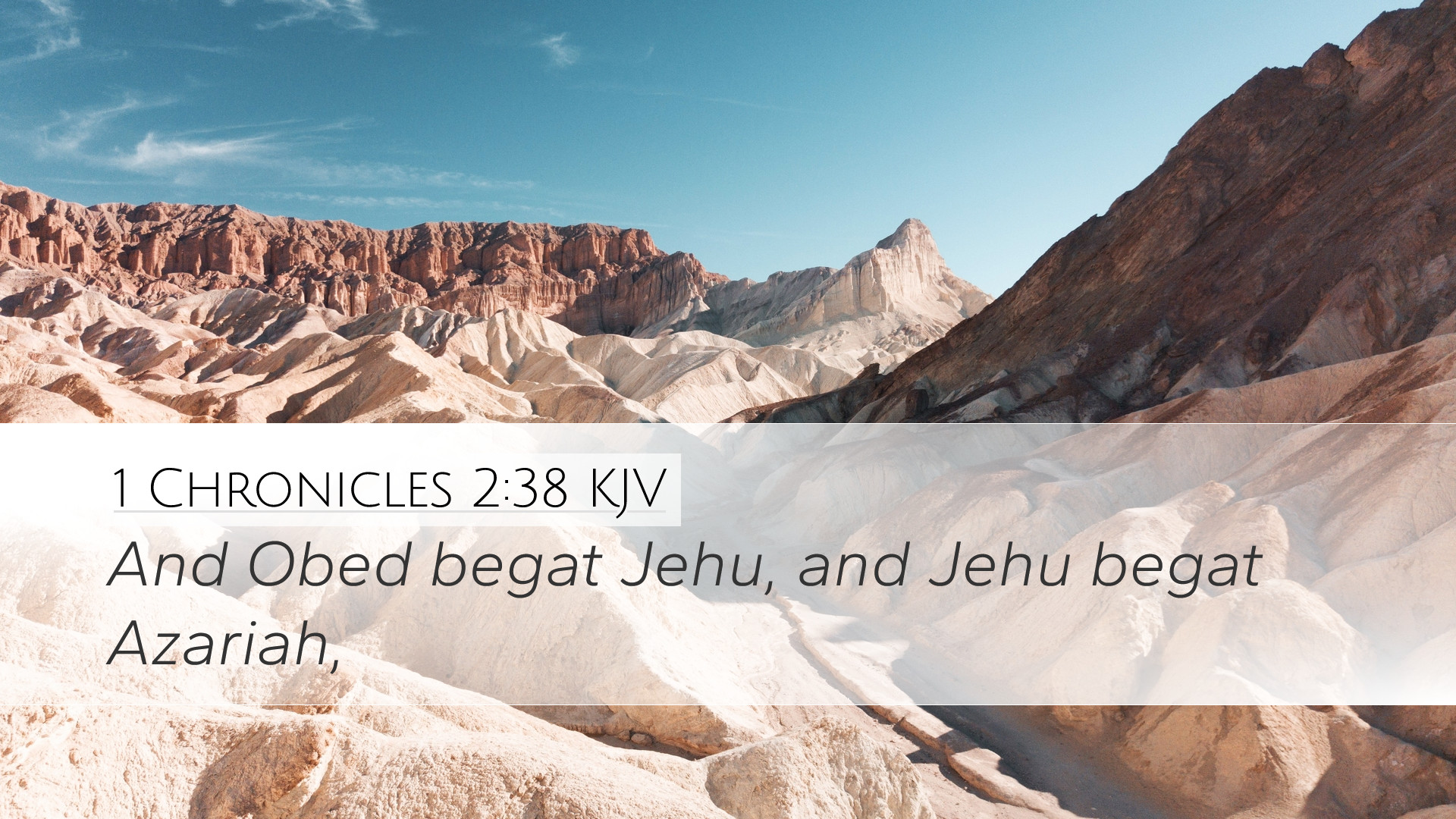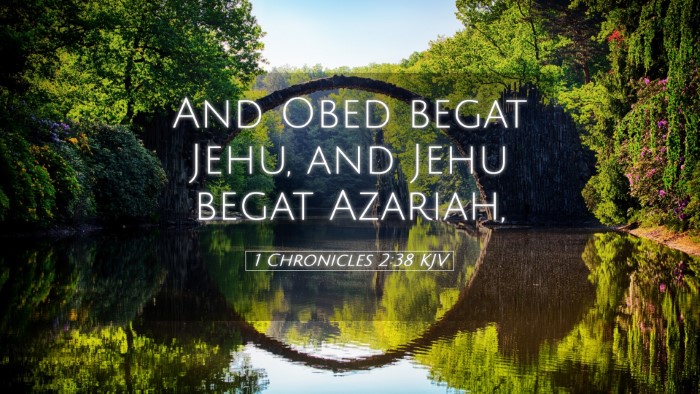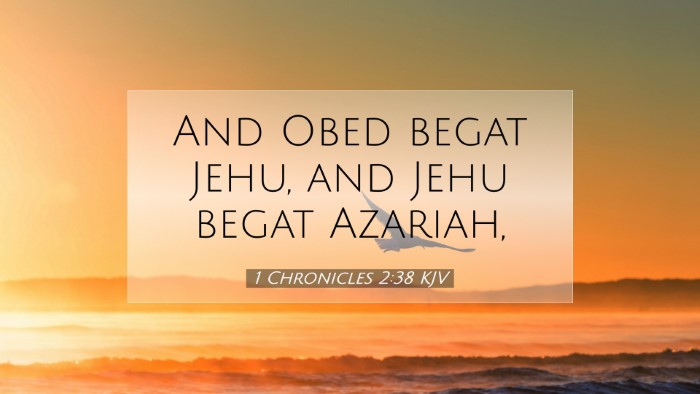Commentary on 1 Chronicles 2:38
Bible Verse: 1 Chronicles 2:38 - "Now the sons of Caleb (the brother of Jerahmeel) were Mesha his firstborn, which was the father of Ziph, and the sons of Mareshah the father of Hebron."
Overview
This passage forms part of the genealogical record in 1 Chronicles, which serves to highlight the lineage of the tribes of Israel. It emphasizes Caleb's distinguished position as a patriarch of the tribe of Judah and outlines his descendants. The genealogies in Chronicles are crucial as they link the past with the present understanding of tribal affiliations and land rights within Israel.
Key Insights from Commentators
Matthew Henry's Commentary
Matthew Henry emphasizes the significance of Caleb, who is praised for his faithfulness and bravery during the Israelite's wilderness wanderings. As one of the twelve spies, Caleb's trust in God's promise set him apart. His lineage, which this verse touches upon, reminds us of God's faithfulness across generations. Henry notes that this genealogical line maintains the historical integrity of the faith of Israel, asserting that Caleb's descendants carry on that legacy.
Caleb's Faithfulness
Henry also elaborates on how Caleb's courage and righteousness are reflected in the generations that followed. The descendants named here are not just individuals; they represent the faith tradition that began with Caleb. The mention of his son Mesha and subsequent descendants embodies a continuation of Caleb's legacy, revealing God's promise to sustain and bless Israel through faithful families.
Albert Barnes' Notes
Albert Barnes provides a more detailed examination of the various descendants of Caleb mentioned in this verse. He points out that the genealogical records are crucial for understanding the division of land and responsibilities among the tribes, particularly in the context of the Israelite conquest of Canaan. Barnes identifies that Mesha, described here, becomes a patriarch of significant importance, as his lineage lays the groundwork for later divisions of territory.
Mesha's Role in Inheritance
Barnes notes that the detail of naming the descendants is not merely for historical record but serves to affirm the promises of land to those who remained steadfast. The mention of Ziph and Mareshah signifies strategic locations within Judah, underscoring that God’s covenant encompasses both spiritual and physical inheritance.
Adam Clarke's Commentary
Adam Clarke focuses on the etymology and significance of the names mentioned. He explains that "Ziph" and "Mareshah" were towns of importance in Judah, linking the passage to the geography of the Israelite territories. Clarke points out that knowing the geographical context enriches the understanding of the text as these locations represent the fulfillment of God's promises to Caleb and his lineage.
Importance of Genealogies
Clarke considers genealogies not just as lists but as a method of establishing identity and belonging in the community. For the Israelites, especially after the Babylonian exile, these records helped affirm their heritage and God's ongoing covenant with them. Clarke stresses that these names carry weight in their historical context, reflecting God's covenantal faithfulness through generations.
Theological Implications
This verse serves as a reminder of the importance of heritage and the passing down of faith through families. In a broader theological context, it highlights God's promise to be with His people across generations. The specifics of genealogies invoke a reflection on communal identity among the Israelites, showing that every individual and family has a role in the divine narrative.
Faith and Continuity
The fact that Caleb's faithful line is recounted emphatically illustrates that faithfulness to God has enduring ramifications. Pastors and scholars might glean from this the awareness that contemporary believers stand on the foundations built by those who came before them. The challenges, victories, and faithfulness of previous generations shape the spiritual landscapes of today.
Community and Land
The mention of locations such as Hebron serves as a poignant reminder of the relationship between faith, community, and land. The destinies of families and communities were intertwined with their ability to remain faithful to God's commands. This resonates deeply in today's church context, where communal identity and ownership of God's promises remain pivotal themes.
Conclusion
The genealogical record of 1 Chronicles 2:38, while seemingly straightforward, provides rich layers of meaning for understanding God's dealings with His people. The insights drawn from historical commentaries reveal not just a continuation of Caleb's line but also a testament to God's promises throughout generations. For pastors and theologians, this narrative emphasizes the importance of character, faithfulness, and community identity in conveying God's overarching redemptive plan.


